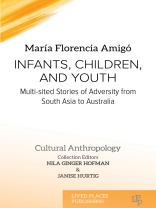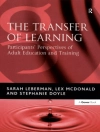How does the place, economy, and culture of where a person is born and raised impact the development of their personhood over their life course?
Drawing from five case studies across diverse global contexts, social anthropologist María Florencia Amigó considers how cultural identity, engrained beliefs and practices, and economic determinants can shape destinies, by looking at how babies become children, and children become independent adults.
Connecting stories across disconnected and distant places, Infants, Children, and Youth explores growing up in adverse contexts. Beginning with early childhood malnutrition and stunting in Aceh, Indonesia, the book moves through the life course to next consider young children of migrant parents in Sydney, Australia. Back in Indonesia, older children contribute to their families’ survival by working as labourers in tobacco plantations in the island of Lombok. In their teenage years, Nepalese maidens negotiate autonomy and early marriage. Finally, Amigó documents the transition from high school to workplace for students from disadvantaged Sydney suburbs.
Addressing themes such as health, work, education, and social reproduction, this book is ideal reading for students of Anthropology, Human Geography, Sociology, Education, Cultural Studies, and Gerontology.
عن المؤلف
Dr Janise Hurtig is an educational anthropologist and community educator and researcher. Her teaching and writing take place at the intersections of adult and popular education, gender and feminism, community development and social change in the Chicago area and in Venezuela. Janise received her Ph.D. in Anthropology from the University of Michigan. She is currently part-time faculty in De Paul University’s School for Continuing and Professional Studies, coordinator of the Community Writing Project, and an adult educator at the Howard Area Community Center.












